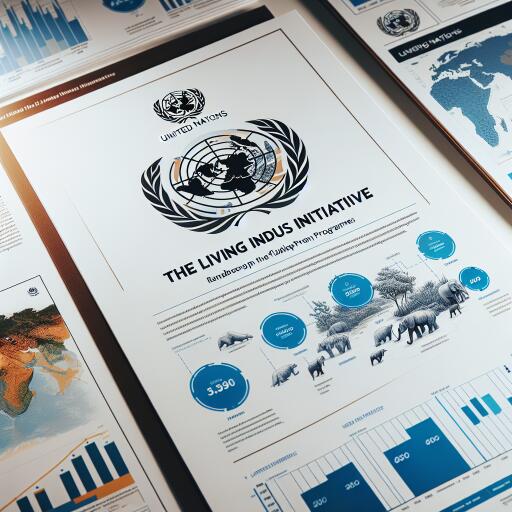
Revitalizing the Lifeline: Pakistan’s Pioneering Effort to Restore the Indus River Basin
In a significant global recognition, the United Nations has acknowledged the ambitious strides of Pakistan’s Living Indus Initiative (LII), positioning it among the top seven UN World Restoration Flagship programs. This distinguished endorsement comes as part of the broader UN Decade on Ecosystem Restoration, jointly overseen by the UN Environment Programme (UNEP) and the Food and Agriculture Organisation (FAO), striving to combat ecosystem degradation worldwide.
The LII emerges as a beacon of hope and rejuvenation for the Indus River Basin, a cradle of diverse natural habitats ranging from terrestrial expanses to freshwater ecosystems, and from coastal insights to marine wonders. The initiative’s core mission revolves around the preservation and rehabilitation of these serene yet vulnerable environments.
Setting an ambitious goal, the initiative targets the restoration of over 30% of the Indus River Basin by the year 2030. This grand vision aligns with the UN’s larger objective of restoring one billion hectares of degraded land across the globe—an area surpassing the size of China.
The unveiling of these flagship endeavors was timed with the commencement of the Sixth UN Environment Assembly (UNEA-6) in Nairobi, which brought together environmental leaders from across the globe to deliberate on the triple planetary crisis—climate change, biodiversity loss, and pollution.
The Living Indus Initiative not only boasts of reviving 1,350,000 hectares through 25 diverse projects but also estimates the financial outlay at an impressive $17 billion. This significant achievement now paves the way for additional support from the UN, both technical and financial, pushing the initiative towards its goal of restoring 25 million hectares by the end of this decade.
Local communities and civil society organizations play a pivotal role in the evolving success story of the LII, demonstrating a heightened commitment to restore the splendor of Pakistan’s Indus Basin. According to the Caretaker Minister for Climate Change and Environmental Coordination Ahmad Irfan Aslam, the initiative offers a unique platform to enhance the ecosystem’s resilience against climate adversities, employing nature-based, gender-responsive approaches led by the community.
A reservoir of biodiversity, the Indus Basin is a sanctuary for 195 mammal species, at least 668 bird species, and over 150 fish species, among them the critically endangered Indus Blind Dolphin. The basin’s ecological significance has only heightened against the backdrop of catastrophic climate events that Pakistan has endured, including unprecedented floods and extreme heat waves, all amplifying the urgency for concerted restoration efforts.
“The heart-wrenching aftermath of climate-induced calamities witnessed in recent years in Pakistan underscores the non-negotiable need for initiatives like the Living Indus,” stated UNEP Executive Director Inger Andersen. She highlighted the initiative’s potential to instill hope and foster resilience, not just within Pakistan but across the region.
Striking a harmonious balance between water resource management, ecosystem preservation, and socio-economic growth, the Living Indus Initiative aims to fortify Pakistan against looming climate threats. By championing sustainable water usage, mitigating pollution, conserving biodiversity, and fostering community participation, the project envisages a resilient future for Pakistan.
The intricate relationship between the people of Pakistan and the Indus Basin spans over six millennia, underpinning the nation’s agriculture, population, and industrial foundations. The Living Indus Initiative thus emerges not only as a commitment to reverse environmental degradation but as a vow to secure the future of this ancient lifeline. The collaboration between government entities, civil society, international bodies, and supporting nations is a testament to the collective will to uphold the sanctity and sustainability of the Indus River Basin.





Leave a Reply